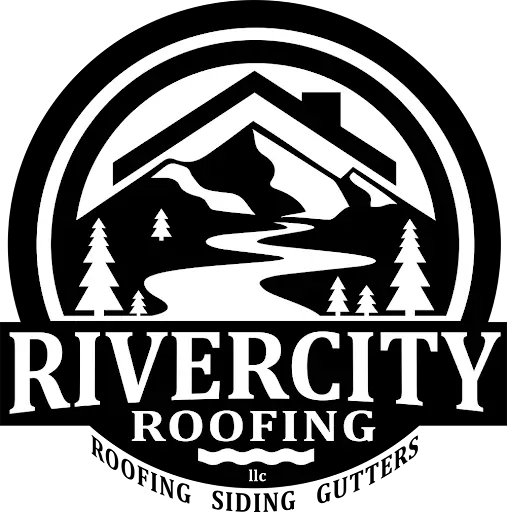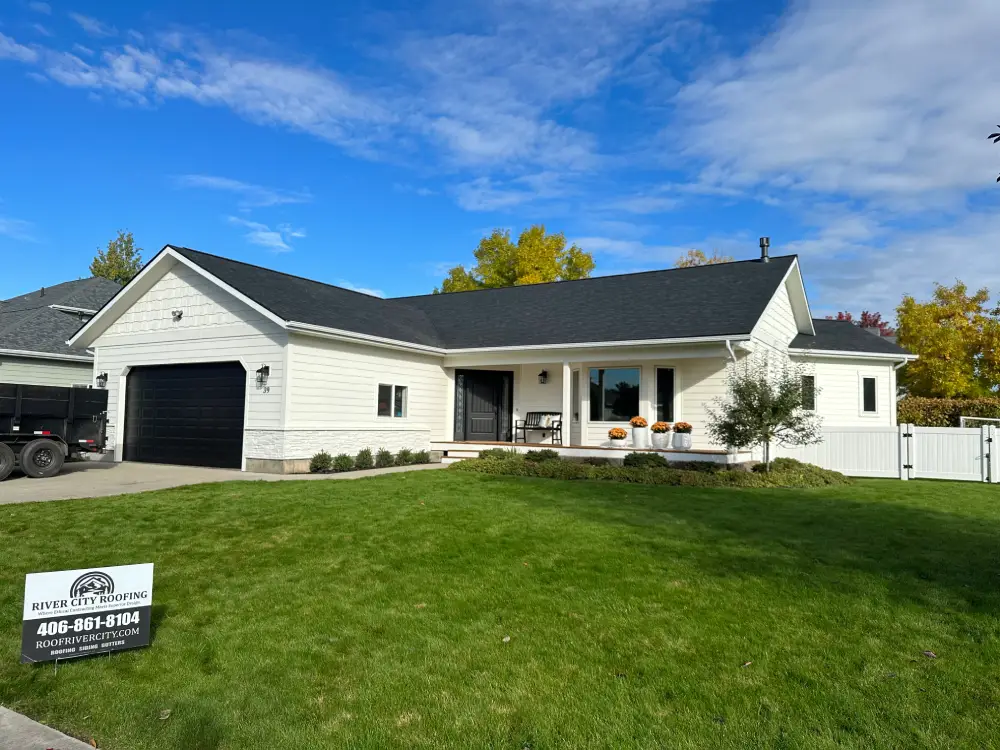Homeowners in Colorado face a significant decision when it comes to roof replacement. How much does a new roof cost in Colorado? This question weighs heavily on the minds of many, as the investment in a new roof has a substantial impact on both property value and long-term home protection. The average cost of roof replacement in Colorado varies widely, influenced by factors such as materials, labor, and the specific requirements of each project.
The roof replacement cost in Colorado depends on several key elements. These include the size and pitch of the roof, the chosen materials, and any additional features or repairs needed. Homeowners should also consider the impact of local building codes and climate conditions on their roofing choices. This article explores the various aspects that affect the average roof replacement costs in Colorado, providing insights to help residents make informed decisions about their roofing projects in 2024.
Breaking Down the Cost of a New Roof in Colorado
When considering a new roof in Colorado, homeowners should budget between $4,500 and $8,000 for every 1,000 square feet of asphalt shingles. The average roof replacement cost typically ranges from $4 to $6 per square foot, depending on labor and installation costs. The cost typically ranges from $4.25 to $8.50 per square foot for basic asphalt shingle installations. To calculate the total expense, one needs to determine the square footage of the roof and decide on the roofing material. It’s important to note that larger roofs require more materials and labor, resulting in higher overall costs.
Material Costs
The choice of roofing material has a significant impact on the total cost. An asphalt shingle roof is the most common and budget-friendly option in Colorado, but it comes with considerations such as lifespan, cost, and the need for professional consultation, especially when dealing with insurance claims and structural integrity. Asphalt shingles offer good durability and a variety of style choices. However, other materials are available:
- Metal roofing: While more expensive upfront, it provides excellent durability and energy efficiency.
- Tile roofing: Known for its esthetic appeal and longevity, but heavier and more complex to install.
- Composite materials: These offer a balance between affordability and durability, mimicking traditional materials at a lower cost.
Designer asphalt shingles, which are more dimensional and heavier, can add $100 to $150 per square to the cost due to their higher price from manufacturers and increased labor requirements.
Labor Expenses
Labor costs make up about 60% of the total expense for a new roof. Roofing companies play a crucial role in determining these labor costs by employing various techniques to assess roof needs accurately. Several factors influence these costs:
- Roof complexity: Intricate designs, steep pitches, or architectural features like dormers and skylights increase labor costs due to the need for more skilled work.
- Roof pitch: Steeper roofs require additional safety precautions and specialized equipment, leading to higher labor expenses. For example:
- 7/12 and 8/12 pitched roofs: Extra $14 per square
- 9/12 and 10/12 pitched roofs: Extra $28 per square
- 11/12 and 12/12 pitched roofs: Extra $42 per square
- Building height: Multi-story buildings present additional challenges:
- Two-story roofs: Extra $14 per square
- Three-story roofs: Extra $28 per square
- Existing roof removal: Removing additional layers of the old roofing can add $15 per square in labour costs.
Additional Fees and Charges
Beyond the basic installation, several additional components and services contribute to the overall cost: The roof deck is a crucial part of the reroofing process, as issues like rot and weathering can be difficult to identify until the existing roof system is removed.
- Permits: Local building codes may require permits for roof replacement projects.
- Underlayment: Installation of asphalt-saturated felt paper as a moisture barrier.
- Drip edge: Metal trim along roof edges to prevent water damage.
- Ice and water barrier: Additional protection in regions prone to ice dams or heavy rainfall.
- Flashing and pipe boots: Sealing around chimneys, walls, and other roof penetrations.
- Attic ventilation: Installation of roof or ridge vents for proper airflow.
- Decking repairs: Replacement of damaged wood decking or framing.
- Gutter work: Reattachment or installation of new gutters if necessary.
- Debris removal: Proper disposal of old roofing materials and construction debris.
These additional elements ensure a robust and properly functioning roofing system, but they also contribute to the overall project cost. Homeowners should discuss these potential add-ons with their chosen Roofing Contractor in Colorado to get a comprehensive understanding of the total investment required for their new roof in Colorado.
Free Roof Inspections. Fast. Reliable.
Is your roof ready to weather the storm? Dont risk property damage. Our free roof inspections provide expert analysis to identify potential issues before they become costly problems.
Choosing the Right Roofing Material for Your Budget
When selecting roofing materials for a home in Colorado, homeowners need to consider factors such as cost, durability, availability, personal preference, and homeowners association requirements. It is crucial to choose a reputable roofing company to ensure quality workmanship and appropriate costs. The choice of material has a significant impact on both the initial investment and the long-term value of the roof. Colorado’s unique climate, with its extreme weather conditions, also plays a crucial role in determining the most suitable roofing option.
Cost-effective options
Asphalt shingles remain the most popular and budget-friendly roofing material in Colorado. They offer a good balance of affordability and durability, making them an attractive choice for many homeowners. The cost of asphalt shingles typically ranges from $4.00 to $5.50 per square foot, with the total estimated cost for roof replacement falling between $5,000 and $15,000. This option appeals to those seeking an economical solution without compromising on quality.
Another cost-effective choice is composite materials, such as synthetic shingles or wood shakes. These materials provide a blend of affordability and durability, often mimicking the appearance of traditional roofing materials at a lower price point. Composite roofing offers homeowners the opportunity to achieve a desired esthetic without stretching their budget too far.
Mid-range choices
Metal roofing represents a mid-range option that offers excellent durability and energy efficiency. While the upfront cost may be higher than asphalt shingles, metal roofs often prove to be a wise long-term investment. They hold up better against environmental impacts such as storm damage and can withstand Colorado’s extreme weather conditions. The cost of metal roofing varies depending on the type:
- Metal shingles: $8.00 – $11.50 per square foot
- Metal standing seam: $10.00 – $13.00 per square foot
- Corrugated steel (with exposed fasteners): $5.00 – $6.00 per square foot
The total estimated cost for a metal roof replacement ranges from $8,000 to $24,000, reflecting its position as a mid-range option with premium benefits.
Premium roofing materials
For homeowners looking for high-end options, several premium materials are available:
- Tile roofing: Known for its esthetic appeal and longevity, tile roofs come in various materials and price ranges:
- Concrete tile: $6,000 – $23,000 total
- Clay tile: $12,000 – $32,000 total
- Custom tile: $30,000 – $50,000+ total
- Slate roofing: This exceptionally long-lasting option offers visual appeal and requires minimal maintenance:
- Natural slate shingles: $18,000 – $70,000+ total
- Synthetic slate shingles: $10,000 – $30,000 total
- Cedar shake roofing: Popular for its New England esthetic, cedar shake is a premium wood option:
- Real wood cedar shakes: $10,000 – $20,000 total
- High-end synthetics: $20,000+ total
These premium materials offer unique benefits, such as extended lifespan, enhanced curb appeal, and superior weather resistance. However, they also come with higher installation costs due to their weight and the specialized skills required for proper installation.
The Role of Roof Design in Determining Costs
The design of a roof plays a crucial role in determining the overall cost of a new roof or replacement project in Colorado. Several factors contribute to the final price, including the size, pitch, and complexity of the roof structure. Understanding these elements helps homeowners to better estimate and plan for their roofing expenses.
Impact of roof size and pitch
The size of the roof is the most significant factor in determining the cost of a roofing project. Roofers typically measure roof size in “squares,” with one square equaling 100 square feet. A larger roof naturally requires more materials and labor, leading to higher overall costs. For example:
Roof size (square feet)
Total installation cost
1,000 $4,000 – $6,000
1,500 $6,000 – $9,000
2,000 $8,000 – $12,000
2,500 $10,000 – $15,000
3,000 $12,000 – $18,000
The pitch or slope of the roof also has a substantial impact on the cost. Steeper roofs require additional safety measures and are more challenging to work on, resulting in higher labor costs. For instance:
- 7/12 and 8/12 pitched roofs: Extra $14 per square
- 9/12 and 10/12 pitched roofs: Extra $28 per square
- 11/12 and 12/12 pitched roofs: Extra $42 per square
Complexity factors
The complexity of a roof design significantly affects the overall cost. Roofs with multiple angles, edges, and slopes are more expensive to work on than simple “up and over” designs. This complexity increases the amount of labor required and often results in more material waste during installation.
Factors that add to roof complexity include:
- Multiple pitches
- Dormers
- Valleys
- Architectural elements
These features not only increase the time and skill required for installation but also impact the waste factor – the amount of material that goes unused due to cuts and overlaps.
Architectural considerations
Architectural elements of a roof can greatly influence the cost of a roofing project. Features such as skylights, chimneys, and vents require special attention during installation and often necessitate additional materials and labor.
Other architectural considerations that affect roofing costs include:
- Roof truss replacement: This can cost $5 to $14 per square foot.
- Roof decking/sheathing: Replacing damaged or weak decking adds $2 to $5 per square foot to the project cost.
- Multi-story homes: Two-story homes add an extra $14 per square, while three-story homes add $28 per square to the overall cost.
These architectural elements not only impact the initial installation costs but also influence long-term maintenance and potential repair expenses. Homeowners should consider these factors when planning their roofing budget and choosing a design that balances esthetics with practicality and cost-effectiveness.
Hidden Costs and Potential Surprises in Roof Replacement
When homeowners embark on a roof replacement project in Colorado, they often encounter unexpected expenses and challenges. Roof replacement costs can vary significantly based on factors such as the size of the home, materials used, and the complexity and accessibility of the roof. These hidden costs and potential surprises can significantly impact the overall budget and timeline of the project. It’s crucial to be aware of these factors to ensure a smooth and successful roof replacement process.
Structural Repairs
One of the most common hidden costs in roof replacement involves structural repairs. As Roofing Contractors begin work, they may uncover issues that were not apparent during the initial inspection. These can include:
- Decking replacement: The wood beneath the shingles, known as decking, may be damaged or rotting. Replacing this crucial component can add anywhere from a few hundred to several thousand dollars to the project cost, depending on the extent of the damage.
- Roof frame stability: In some cases, the underlying structure of the roof may require reinforcement or repair to ensure long-term stability.
- Multiple roofing layers: If a home has multiple layers of roofing materials, removing these additional layers adds to labor and disposal costs. This can increase expenses by several hundred to a few thousand dollars.
Ventilation Upgrades
Proper attic ventilation plays a vital role in maintaining a roof’s longevity and efficiency. Homeowners may face additional costs related to ventilation improvements:
- Installation of roof or ridge vents: These components are essential for maintaining adequate airflow and preventing moisture buildup in the attic space.
- Air-impermeable insulation: For attics lacking ventilation features, installing this type of insulation becomes necessary to prevent cold moisture from accumulating on the roofing material.
- Inspection requirements: In Colorado, new attic venting construction must be inspected to ensure compliance with roofing codes and safe air expulsion.
Code Compliance Expenses
Adhering to local building codes and regulations can lead to unexpected costs during a roof replacement project:
- Permit fees: Depending on local requirements, obtaining necessary permits for the roof replacement can add to the overall cost.
- Roofing layer restrictions: Most areas in Colorado allow only two layers of roofing. For roofs with more than two layers, complete removal down to the decking is required, potentially increasing labor and material costs.
- Equipment installation requirements: Mechanical equipment on the roof must be installed on curb or leg bearings that are exactly eight inches high and secured to watertight decking. This specific requirement may necessitate additional work and expenses.
- Void filling: Roof boards over half an inch thick must not have continuous openings between them. Filling these voids to prevent water damage adds to the project’s complexity and cost.
By understanding these potential hidden costs and surprises, homeowners can better prepare for their roof replacement projects in Colorado. It’s advisable to discuss these possibilities with roofing contractors during the planning phase and to set aside a contingency fund of 10-20% of the overall budget to cover unexpected expenses that may arise during the project.
Conclusion
Navigating the complexities of roof replacement in Colorado requires careful consideration of various factors. The cost of a new roof has an impact on both immediate budgets and long-term home value, making it crucial to weigh options thoughtfully. From material choices to design considerations, homeowners face a range of decisions that shape the final expense and quality of their roofing project.
By taking into account structural needs, ventilation requirements, and local building codes, Colorado residents can better plan their roofing projects. In the end, investing in a quality roof not only protects the home but also enhances its overall value and energy efficiency.



